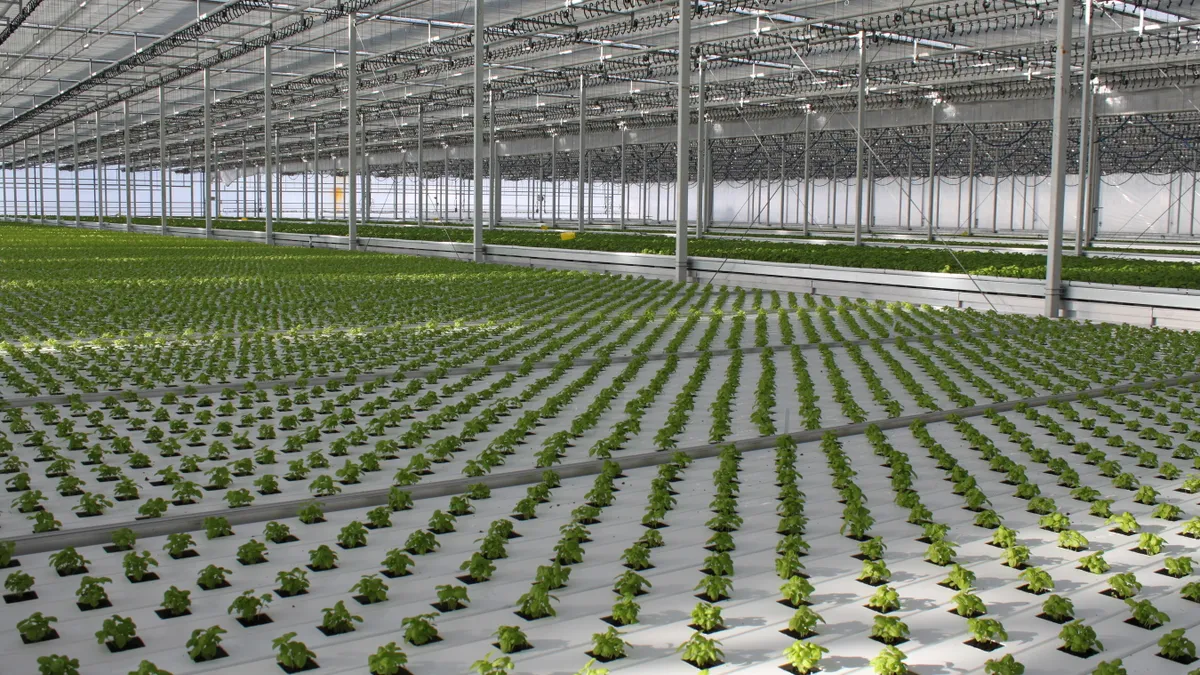Dive Brief:
-
Edible Garden saw second quarter revenue grow 41.4% over last year, bucking the trend among controlled environment agriculture companies that have struggled to secure funding and maintain profitability.
-
Revenue totaled $4.2 million compared to $3 million a year ago, according to the earnings report. Gross profit more than doubled after ramping up production of a new facility in Grand Rapids, Michigan and expanding a distribution deal with Walmart.
-
“[This] provides evidence that our strategic approach is working,” CEO Jim Kras said in an earnings call Friday, adding that Edible Garden’s close retail partnerships have helped insulate it from challenges indoor farming competitors are facing. He said he expects the company to be cash-flow positive before the end of the year.
Dive Insight:
While some have sustained success, a number of vertical farm companies that grow produce indoors have withered under mounting financial pressure. Over the summer, AeroFarms and AppHarvest filed for Chapter 11 bankruptcy due to high operating costs and difficulties securing capital from outside investors.
Asked what Edible Gardens is doing differently, Kras told investors that “we’ve been able to benefit from being uniquely positioned with strong retail partnerships that have allowed us to go deeper with the likes of Walmart and Meijer and Wakefern and the major players.”
Kras also attributed the company’s earnings increase to a new agriculture technology facility that opened in April that expands Edible Garden’s production capacities and allows it to bring previously outsourced production in-house, lowering costs. During the quarter, the production site helped increase shipping capabilities and bolster sales immediately. At full capacity, Kras said it has the potential to generate $20 million in revenue annually.
In addition to added capacity, Edible Garden expanded its distribution deal with Walmart, offering a wider range of products to stores across the U.S. The company is also an active contributor to the retailer’s sustainability initiative Project Gigaton.
“We’re confident this expanded distribution relationship with Walmart will positively impact our revenue and cash flow in 2023 and subsequent years,” Kras told investors.
In the three months ending June 30, Edible Garden reported a gross profit of $553,000 compared to $206,000 the previous year. The company also had a net loss of $638,000, an improvement from a loss of $4.8 million last year.
Kras said he expects the company to be cash-flow positive on a quarterly basis before the end of the year. In July, Edible Garden implemented automation technology that monitors inventory data in real-time, allowing it to track and manage expenses at a finer level.
“While others in our industry have struggled, often shrinking or even ceasing operations, Edible Garden continues to grow successfully building its reputation and gaining a larger portion of market share,” Kras said in the call.
Indoor produce and herbs grower Local Bounti, led by a former Amazon executive, also went against the grain, reporting positive earnings growth as it works to expand capacity at new and existing operations.











